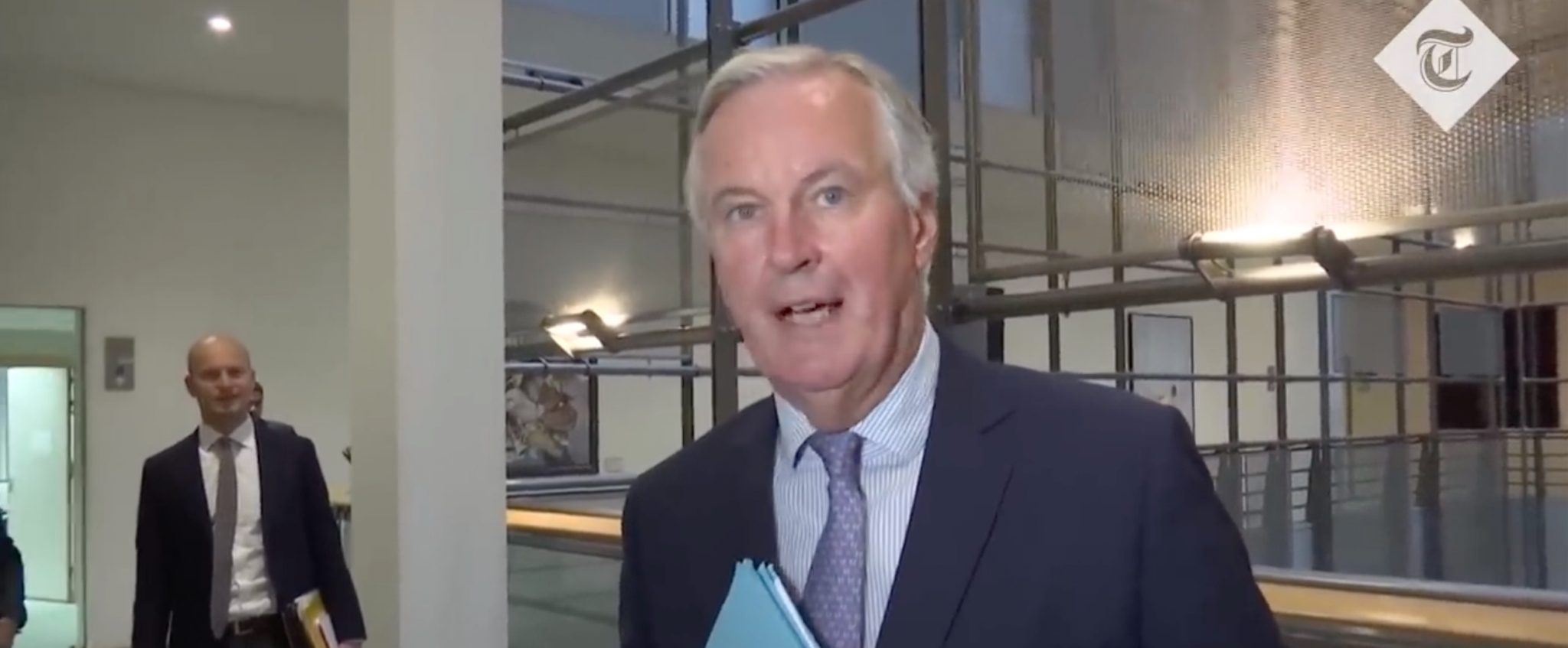Another Christmas has come and gone. The season of Santa Claus and for remembering the birth in Bethlehem of a small child, heralded by angels proclaiming Him the “Prince of Peace.” And, not to be outdone by Halloween, of ghosts. For who can forget Charles Dickens’s “A Christmas Carol” and its story of the scrimping Ebenezer Scrooge? Cold-hearted and tight-fisted, he is visited by reforming Ghosts of Yuletides past, present, and future. Scrooge is redeemed, and sets out on a path of personal and public approbation. The tale is no less apropos for British prime minister Boris Johnson, preparing to take the United Kingdom out of the European Union. The EU has become the specter haunting Brexit.
The phantom menacing Britain is the EU’s chief Brexit negotiator Michel Barnier, who in a recent essay shares his vision of the future relationship. Mr. Barnier begins by expressing regret at Britain’s determination to exit but, in a spirit of equanimity and good will, looks forward to the “opportunity to forge a new UK-EU partnership.” Taking a page from former premier Theresa May, he reiterates that though the “UK may be leaving the EU … it is not leaving Europe.”
Instead, Mr. Barnier outlines three areas of mutual interest. One such step will be “to work together and discuss joint solutions to global challenges.” Another, “to build a close security relationship.” Can anyone contend against these aspirations? Britain pursues its international agenda with myriad intergovernmental agencies, be it the United Nations, NATO, or World Trade Organization. No serious impediments exist from extending its collaborative reach to former colleagues in the EU.
Mr. Barnier’s third area for cooperation, however, sets the cat among the pigeons. “We need an economic partnership that reflects our common interests, geographical proximity, and interdependence.” Innocuous, so far as it goes. Even praise for competition in the areas of “skills, innovation, and quality” would not raise an eyebrow among Mr. Johnson’s Conservative cabinet.
Trouble emerges only when the EU’s Brexit mandarin hoists his true colors. “We know that competing on social and environmental standards … leads only to a race to the bottom,” a race that places “workers, consumers, and the planet on the losing side.” Such assertions may be common parlance among the Brussels bureaucracy, but at Westminster they’ll raise a raucous. The Labour Party took such a stand at December’s general election; its trouncing at the ballot box speaks of its limited appeal among weary Britons.
Neither will the British government be sanguine as to Mr. Barnier’s ultimatum for a future deal, “Any free-trade agreement must provide for a level playing field on standards, state aid, and tax matters.” It is as if the 2016 referendum to leave never happened, an “exit” commitment reaffirmed two short weeks ago.
Mr. Barnier’s line-in-the-sand makes a mockery of Tory reforms. Mr. Johnson went to the polls promising to cut unnecessary red tape, use state spending to source infrastructure and training schemes, and lower taxes to unleash entrepreneurial innovation, thus encouraging employment and economic prosperity. The EU’s chief negotiator would have all this at naught.
Mr. Barnier’s “poison pill” is doubtless administered to those in the City of London who aspire to turn their capital into “Singapore-on-the Thames.” (Arch Remainer Philip Hammond pooh-poohed the Singapore model when Chancellor of the Exchequer.) This Asian economic powerhouse consistently ranks in the top five of the Heritage Foundation’s “Index of Economic Freedom,” scoring high marks on rule of law, regulatory efficiency, government size, and open markets. (The UK currently ranks #7, while America scores a respectable #12. As for the EU’s major players, Germany ranks #24 with France a distant #71.)
Is there any mistaking why Mr. Barnier has singled out as “non-negotiables” those very measures essential to economic dynamism? Measures that Mr. Johnson has made the foundation of Britain’s post-EU future, measures on which most of the EU-membership fail abysmally. (Ireland is a notable exception.)
A prescient Prime Minister will see in these EU moves to frustrate Brexit the shadow of Brussels bureaucrats that use intimidation and obfuscation (for example, ignoring populist pushback in member states) to spook conformity from countries that run counter to their will.
Better for Boris Johnson to focus on the third specter of Dickens’s “Carol.” This Ghost from the future proclaims we are not bound by the past, nor does the present dictate our tomorrows. Why dicker around with EU negotiators if they have already dictated the outcome? Mr. Barnier does not disguise his intentions to defend “the bloc’s core interests” in the spirit of EU-27 “unity and solidarity.” Mr. Johnson should do likewise, declare for a “clean break,” and in the true spirit of British independence, “get Brexit done.”
























